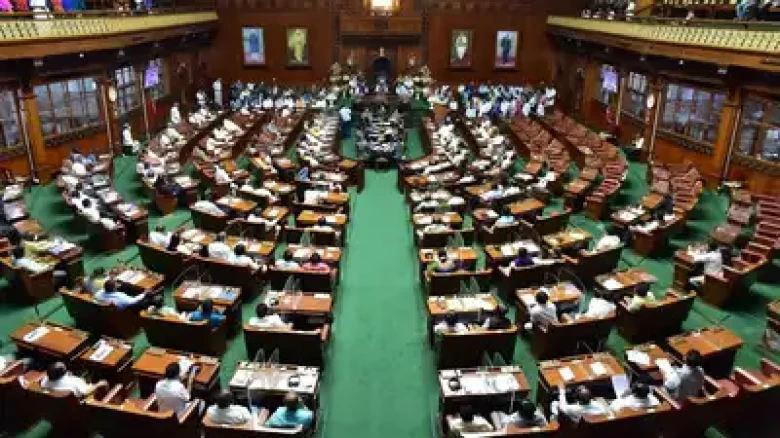Regional

Digital Desk: On the final day of its monsoon session on Saturday, the Himachal Pradesh assembly will examine a measure that has been tabled to add a specific reference to "mass conversions" to an existing law that prohibits changing one's religion by force or allurement and to strengthen penalties.
On Friday, the Himachal Pradesh Freedom of Religion (Amendment) Bill, 2022, was introduced by the Jai Ram Thakur-led government. It is a stricter version of the Himachal Pradesh Freedom of Religion Act, 2019, which was passed just over 18 months ago.
The 2019 measure was notified on December 21, 2020, 15 months after it was passed in the state legislature. The 2006 statute, which had milder penalties, has been repealed by the 2019 version.
The amendment bill suggests raising the maximum penalty for forced conversions from seven years to a maximum of ten years.
It mandates that a police officer with at least the rank of sub-inspector must conduct the investigation of any complaints submitted in accordance with the Act. A session court will now judge the offenses.
"Some minor changes are being made in the punishment clauses to make the Act more effective," the chief minister had said while introducing the bill on Friday.
The Act forbids conversion through deception, violence, force, undue influence, inducement, marriage, or any other dishonest method. According to Section 5 of the Act, any marriage performed only for the purpose of conversion is deemed "null and void."
This and almost all other provisions remain unchanged in the proposed amendment to the law, which was introduced in the House just months before the state goes to the polls.
The law's proposed revision, which was filed in the House just months before the state's elections, leaves this and nearly all other clauses unaltered.
Anyone wishing to convert must notify the district magistrate of their intention to change their religion on their own within a month, according to state legislation.
The provision in the 2019 Act was also included in the 2006 law and was challenged in court.
A month's notice will also be given by the priest conducting the conversion ceremony. However, this clause does not apply to people who return to their original religion.
When introducing the law on Friday, the chief minister had stated that the 2019 Act lacked a provision to prevent mass conversion and that "hence, a provision to this effect is being made." The 2019 Act's sections 2, 4, 7, and 13 are all up for modification, and section 8A is proposed to be added.
A "mass conversion" arises when two or more people are converted at the same time.
The maximum penalty under this draught law is ten years, up from seven under the 2019 Act and three in the old Himachal Pradesh Freedom of Religion Act, 2006, which was on similar lines.
According to the existing law, neither a person nor an organisation that disobeys its rules is permitted to accept a gift or contribution of any sort, domestically or abroad.
The Congress government of Virbhadra Singh introduced the bill in 2006. The BJP government's 2019 version was approved unanimously.
Leave A Comment